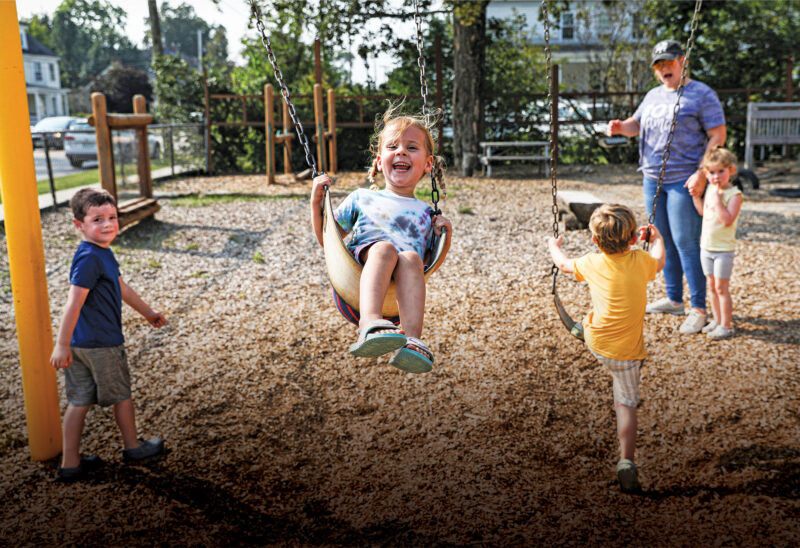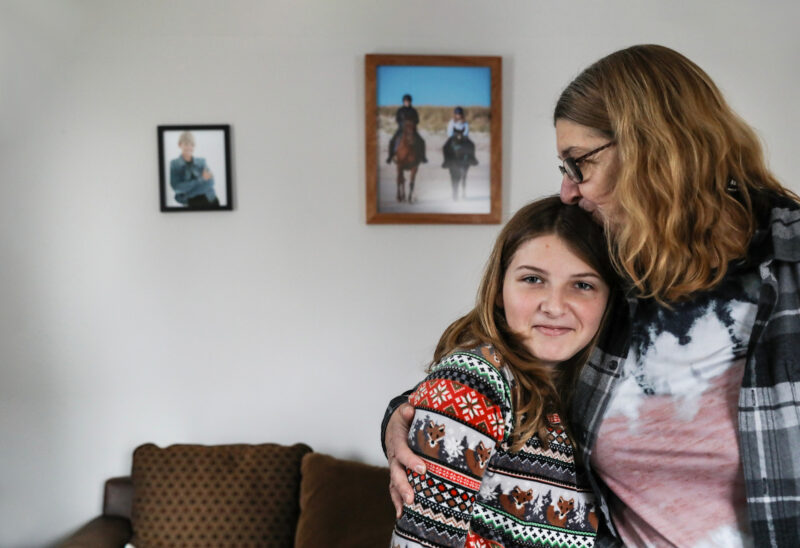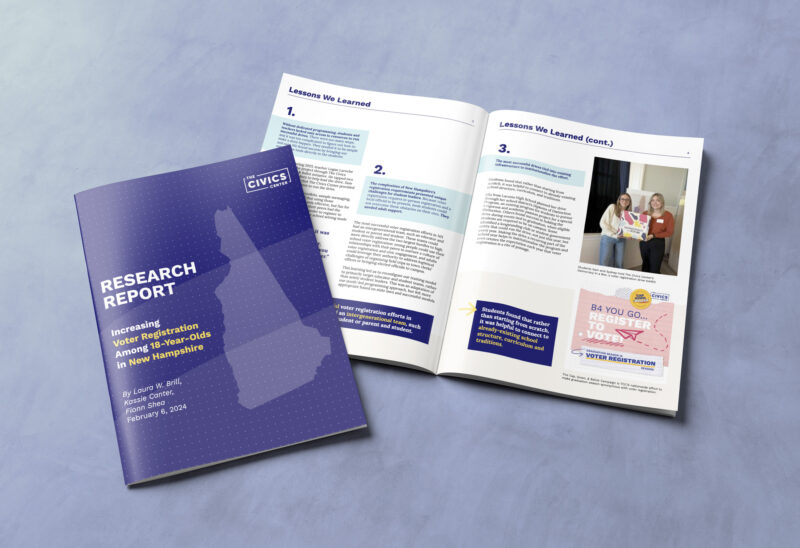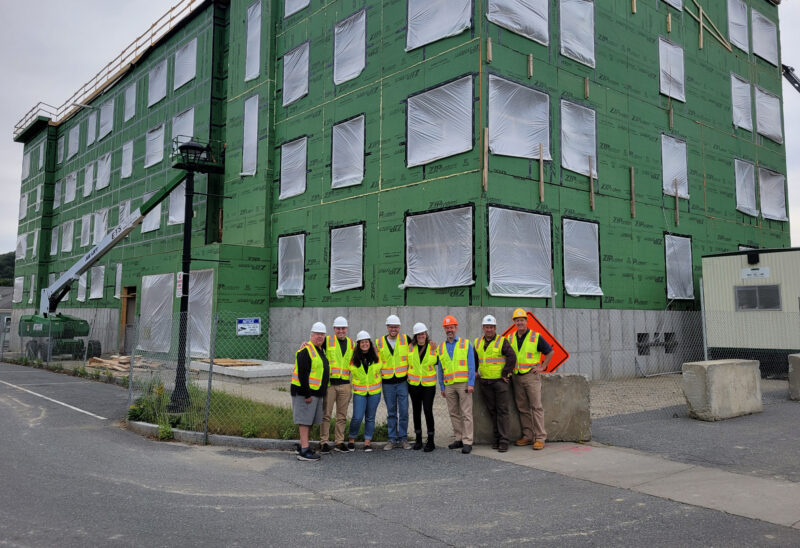When the 30 children show up at the Lancaster Play & Learn for the day, they are entering not an isolated center on a side street in a vast, rural swath of the state — but being wrapped into a coordinated, county-wide and constantly-improving system of early childhood learning and care.
That system is the result of more than a decade of collaborative work by scores of Coös County residents, and funded by the Neil and Louise Tillotson Fund of the New Hampshire Charitable Foundation.
A research brief about that work, “By Us and For Us, A Story of Early Childhood Development Systems Change and Results in a Rural Context,” has just been published in The Foundation Review, a national, peer-reviewed journal.
“We are thrilled to see this work published nationally — and hope that what we have all learned over more than a decade here in rural New Hampshire can be applied in other places to improve outcomes and opportunities for kids,” said Kirsten Scobie, director of the Neil and Louise Tillotson Funds.
Researchers spent six months evaluating the results of the work, conducting scores of interviews and analyzing data. The independent evaluation was commissioned by the Tillotson Fund.
A transformation in systems for young children and families
In the years since the Tillotson Fund began deep and targeted investments to improve outcomes for children from birth to age eight in Coös County, much has changed.
The efforts, researchers wrote “have transformed Coös’ early childhood organizations and systems.”
The Coös Coalition for Children and Young Families, a robust network of partners, coordinates efforts across health care, mental health, early childhood education and family supports to improve outcomes for every child in Coös County.
Where early learning educators had little contact with one another and little local opportunity for professional development, the Coös Directors Network now meets monthly and organizes an annual learning summit and ongoing training. Early childhood teachers have been trained in and are using evidence-based curricula for social-emotional learning and child development. Thirteen of the 14 eligible centers in this wide, rural expanse of the state have achieved either state licensed-plus status or full national accreditation (up from three that were licensed-plus or accredited in 2009). The 14th center is on track to achieve licensed-plus status in 2019. Each center is routinely evaluated and working on self-improvement plans.
Increasingly, early childhood centers are aligning practices and curricula with local school districts, so children are better prepared to transition smoothly into kindergarten.
“Back before this, everyone was very disconnected,” said Amy Graham, executive director of the Lancaster Play & Learn. “Now, everyone is very connected.” As a result, she said, “Kids and families are getting a better quality of care.”
Graham also points out the books, sturdy wooden furniture, teaching materials and other supplies that her center (like others) were able to buy with grant support, and all of which were tied to center quality improvement strategies.
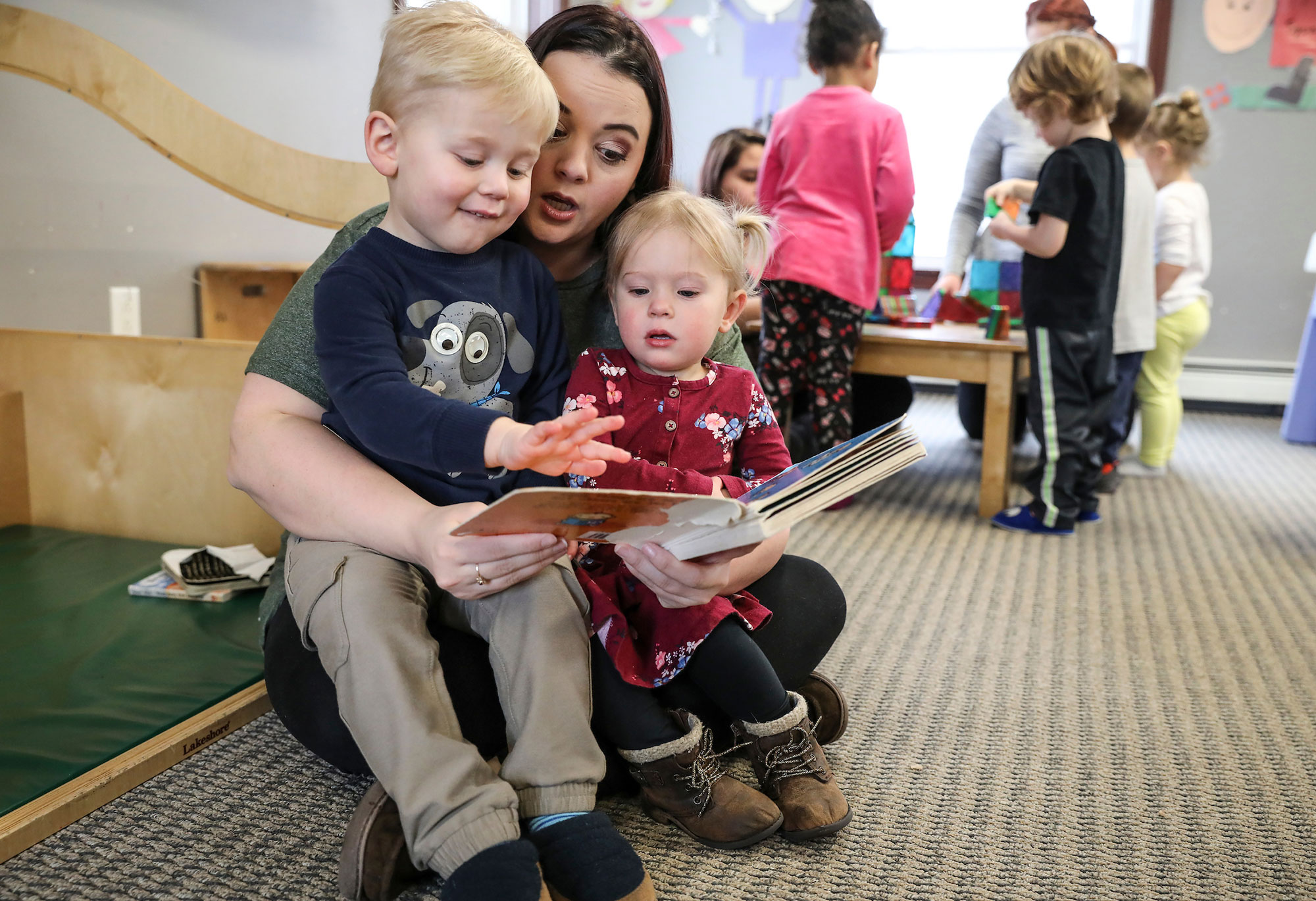
The family of every child born in Coös County’s birthing hospital is now offered home visiting services: help with the basics and the nuances of parenting that every new mom or dad needs.
Northern Human Services created an infant mental health team which now collaborates widely across disciplines, working with early childhood centers and in schools to help promote positive social-emotional development and provide families and young children with services.
“Ten years ago, there really wasn’t any collaboration,” said Joanne Kawecki, Director of Infant and Early Childhood Mental Health Services at Northern Human Services.
Northern Human Services has gone from serving just a handful of the most severe cases in clinical settings to providing early intervention and support to a much broader population.
Working groups of the Coös Coalition are deployed with plans and goals, meeting monthly to advance and refine the progress for children and young families. While the efforts began by targeting children birth to age five, the target age has been expanded to age eight, opening a new frontier of coordinating efforts with those of local public schools.
The likelihood that moms (and other caregivers) have been screened for maternal depression has increased by 86 percent since 2015. More than half of all children age 0-5 in Coös County have received developmental screening — up from just 18 percent in 2012 — and are much more likely to get support and services when warranted. The developmental screenings used are increasingly consistent across providers, so that doctors’ offices and mental health providers and early learning centers are more consistently using the same measures.
The efforts, researchers wrote, have “achieved dramatic early childhood systems change in a ten-year period by creating community capacity, a culture of collaboration and improvement, and transforming Coös early childhood organizations — creating an integrated, high-quality system for early learning and development where none existed before.”
Why investing in early childhood matters
The Neil and Louise Tillotson Fund was created in 2006 as a catalyst for sustainable community and economic development in Coös and surrounding communities. The committee of fund advisors and staff recognized that a deep investment in early childhood was a good way to achieve both ends.
The learning that happens in the early years lays the foundation for all learning that happens later. Young children who are provided with safe, nurturing, stimulating environments grow into the adults who will thrive in and sustain communities and families tomorrow.
Coös County is a wide swath of geography — but one with a small enough population that employing a “population-based” strategy is possible. Reaching all of the children under the age of eight and providing them with in-home parenting support, consistent health and mental health care and access to high quality childcare and preschool programs is a lofty — but not impossible — goal in a place where those children number fewer than 2,000.
Challenges, of course, remain.
Reaching children cared for in home-based settings is difficult; the licensed-plus and accredited centers care for just 31 percent of the target population of children in the region. Advocates hope to expand efforts to train home-based care-givers in social-emotional learning and best practices.
Pay for early childhood educators remains painfully low, with benefits nearly non-existent. Cost to provide care and operate centers is high, so families struggle to afford care — while at the same time, even the highest-quality centers scrape by on slim margins.
A new vision made possible
The progress made and lessons learned from this deep investment in Coös children have already informed other efforts to help improve outcomes for children.
The model influenced SPARK NH, the governor’s early-childhood advisory council’s “Framework for Action for New Hampshire’s Young Children,” which has helped to drive increased state funding for early childhood care.
And the work informed, and help lay groundwork for, New Hampshire Tomorrow, the Charitable Foundation’s 10-year $100m investment to increase opportunity for young people in New Hampshire.
At this center in Lancaster, with its well-trained and motivated staff, its sturdy wooden furniture, its quality improvement plan and thoughtful class structures, it is easy to image parents seeing the investments in Coös young children and families as a magnet.
“Wouldn’t it be great to be able to say, ‘Come raise your child in Coös. You can have free home visiting, we will focus on social-emotional skills from birth right on through, and we can tell you if your child is ready for kindergarten,’” said Mollie White, the executive manager of the Coös Coalition for Young Children and Families. “That would be the vision.”
Hardly a vision that might have been imagined a decade ago.

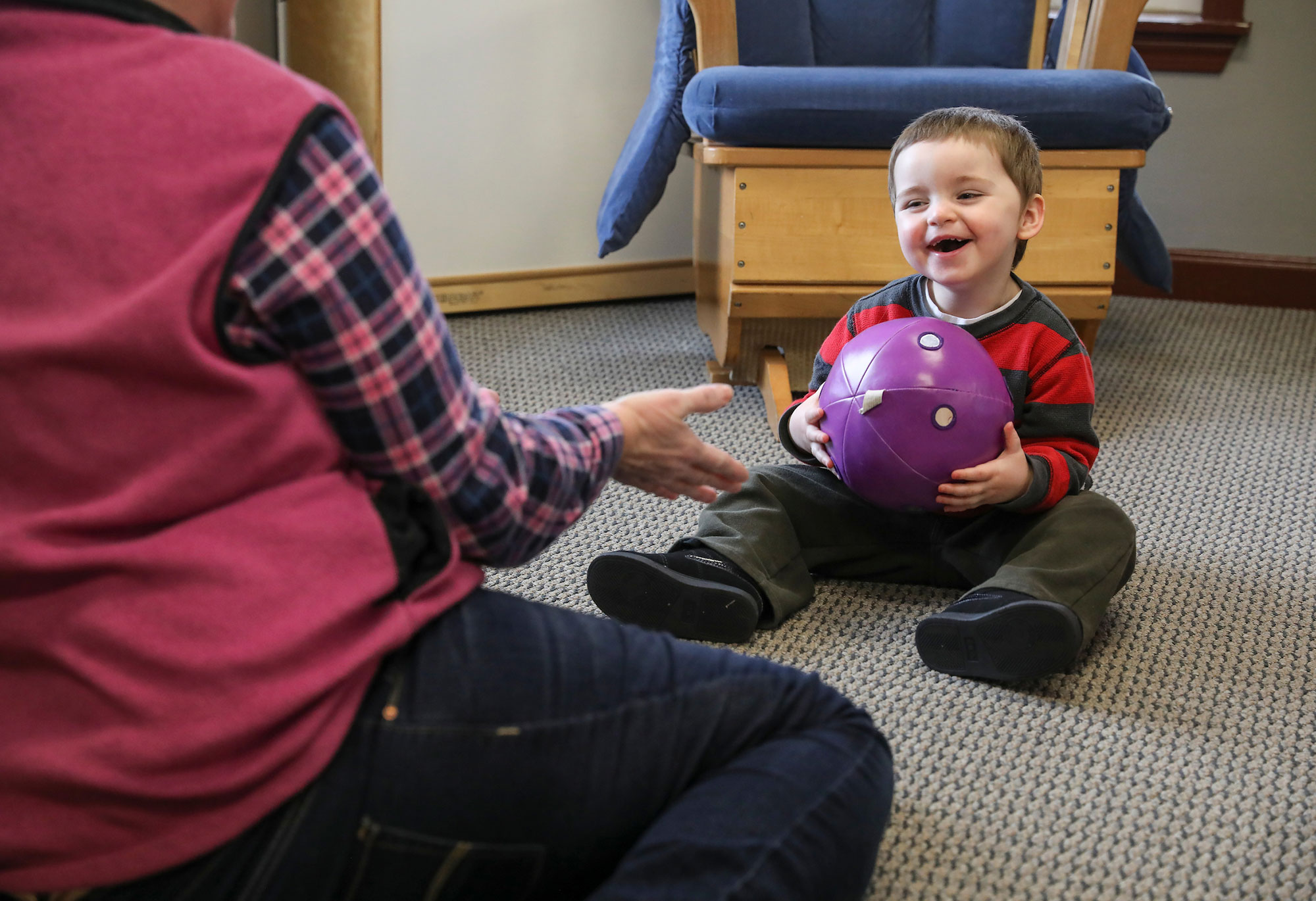






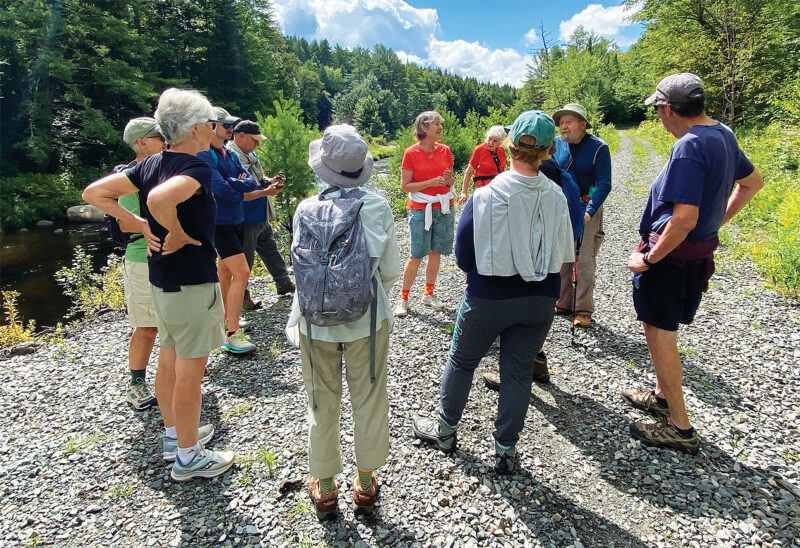

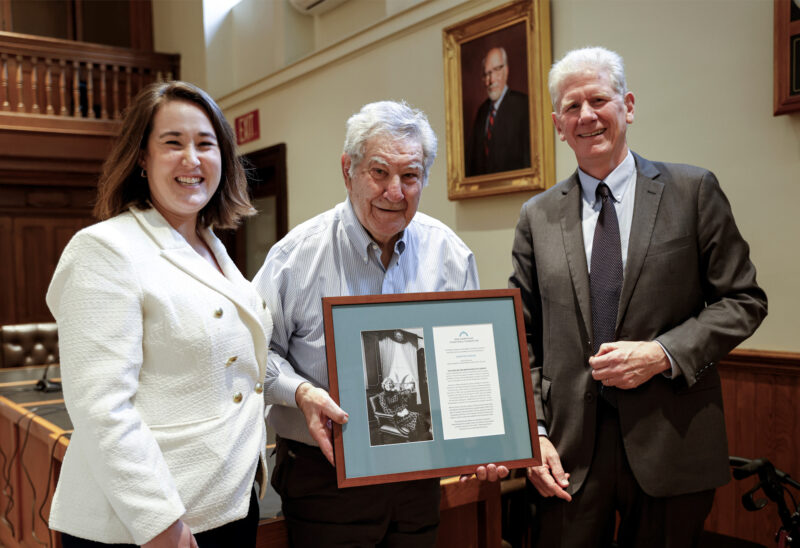

![Rev. Heidi Carrington Heath joined Seacoast Outright. [Photo by Cheryl Senter]](https://www.nhcf.org/wp-content/uploads/2024/05/Heidi-Carrington-Thumbnail-800x548.jpg)
